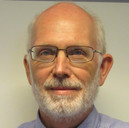 prof. dr. Lambert Schomaker
Artificial Intelligence and Cognitive Engineering (ALICE)
Kunstmatige Intelligentie
[Research
Rijksuniversiteit Groningen
Bernoulliborg building (BB)
Nijenborgh 9
9747 AG Groningen, The Netherlands
Tel: +31-50-363-7908
Fax: +31-50-363-6687
E-mail: l.r.b.schomaker(at)rug.nl
E-mail: home email address
prof. dr. Lambert Schomaker
Artificial Intelligence and Cognitive Engineering (ALICE)
Kunstmatige Intelligentie
[Research
Rijksuniversiteit Groningen
Bernoulliborg building (BB)
Nijenborgh 9
9747 AG Groningen, The Netherlands
Tel: +31-50-363-7908
Fax: +31-50-363-6687
E-mail: l.r.b.schomaker(at)rug.nl
E-mail: home email address
|
Interests & projects
Recent
Activities
|
|
- Publications
- Older Publications,
- People in my group
- Former M.Sc. Students
- Ph.D. involvement
- Courses
Post-doctoral researchers
Current PhD students
- Asmaa Haja - Deep learning methods for microscopy in biology
- Sha Luo - Reinforcement-based learning of object handling in robots
- Mahya Ameryan - Deep learning for text recognition and pictorial semantics
- Maruf Dhali - Dead Sea Scrolls, document dating and writer identification
- Davide Cipollini - Neuromorphic computing (deep learning for electron microscopy, with prof. Beatriz Noheda, materials science)
- Jordi Timmermans - Neuromorphic computing (electronic sensorimotor circuit modeling) with prof. Tamalika Banerjee, materials science)
- Anouk Goossens - Building blocks for electronic brains (co-supervisor with prof. Tamalika Banerjee)
(previous PhD students)
- Zhenxing Zhang - Text-to-image GANs (dissertation 7 Febr. 2023.) Zhenxing was ready in 3 years!
- Jean-Paul van Oosten - Continuous labeling and learning
Jean-Paul has obtained, at the ICFHR 2012, the IAPR Best Paper Award:
Jean-Paul Van Oosten, Lambert Schomaker (2010).
Separability versus Prototypicality in Handwritten Word Retrieval,
Proc. Int. Conference on Frontiers in Handwriting Recognition, September 18-20 2012, Bari, Italy, IEEE Computer Society, pp. 8-13,
DOI 10.1109/ICFHR.2012.269
- Amir Shantia - Robotics perception and navigation (together with Marco Wiering)
- Bowornrat Sriman (camera-based text detection and recognition for Asian scripts)
- Sheng He (writing style-based dating of handwritten manuscripts, dissertation 2017, 'cum laude' - with honors)
- Marius Bulacu (writer identification, dissertation 2007)
- Tijn van der Zant (handwritten historical document retrieval, dissertation 2010)
- Axel Brink (robust writer identification and verification, dissertation 2011)
- Gert Kootstra (biologically inspired robot vision and navigation, dissertation 2010)
- Hado van Hasselt (reinforcement learning systems, with Marco Wiering, dissertation 2011)
Visiting researcher
- Setare Rezaee was a PhD guest, working on Persian (Farsi) handwriting recognition using deep learning (2018/2019).
- Masahiro Niitsuma (2015) - writer identification in Bach's sheet music
- Nobuo Ezaki (2004) - camera-based text detection
|
|
|
 prof. dr. Lambert Schomaker
Artificial Intelligence and Cognitive Engineering (ALICE)
Kunstmatige Intelligentie
[Research
Rijksuniversiteit Groningen
Bernoulliborg building (BB)
Nijenborgh 9
9747 AG Groningen, The Netherlands
Tel: +31-50-363-7908
Fax: +31-50-363-6687
E-mail: l.r.b.schomaker(at)rug.nl
E-mail: home email address
prof. dr. Lambert Schomaker
Artificial Intelligence and Cognitive Engineering (ALICE)
Kunstmatige Intelligentie
[Research
Rijksuniversiteit Groningen
Bernoulliborg building (BB)
Nijenborgh 9
9747 AG Groningen, The Netherlands
Tel: +31-50-363-7908
Fax: +31-50-363-6687
E-mail: l.r.b.schomaker(at)rug.nl
E-mail: home email address